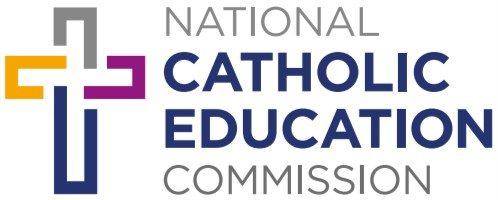This week I am in Rome for the 100th Council of the International Office of Catholic Education representing Australian Catholic schools and looking at the progress and achievements of Catholic education globally.
While in Rome, I am also participating in a general audience with Pope Francis. Both events are an opportunity to reflect on Pope Francis’ Encyclical Fratelli Tutti, which at its heart asks us to love and learn from everyone as it seeks to bring together the best from everyone through dialogue, diversity, understanding and cooperation.
These themes are embedded into the national priorities of the National Catholic Education Commission to enliven faith formation and religious education, support the continual improvement of educational outcomes for all students, and respond to the needs of families through strong advocacy for recurrent and capital funding, legislation, and policy.
As we approach the end of the school year it is also a time to reflect on the significant progress and achievements for Catholic education at the national level.
We continue to see an upward trend in enrolments across our 1,759 Catholic schools; we are focused on school improvement and strengthening learning outcomes; and have been closely involved in the consultation processes with governments from across Australia on national reform.
Our work has been broadened and strengthened by our willingness and ability to collaborate and co-create with our state and territory peak bodies, diocesan systems and Religious Institute & Ministerial Public Juridic Person authorities to engage deeply on what the data is telling us and to identify examples of practice that are having a positive effect and sharing these across systems and school communities.
We are collaborating nationally across the sector to address student outcomes in mathematics, this includes our Mastery in Mathematics Year 7 and 8 curriculum resources, and our mathematic webinars. We are also researching early years literacy and developing a reading framework for use across the Catholic sector.
We are focused on the Religious Discrimination Bill which we hope will enshrine protections for families to choose faith-based education and ensure Catholic schools can continue to teach and operate as Catholic schools, with the Australian Law Reform Commission due to report at the end of this year or early in 2024.
The NCEC also supports the actions outlined in the National Teacher Workforce Action Plan, which is looking at the demands on our teachers, reducing workload and ensuring their focus and attention is where it needs to be to best support student learning and wellbeing.
The International Office of Catholic Education has recently launched some new resources to assist in response to the call by Pope Francis for a new season of educational commitment to raise awareness, promote, guide and build on the Global Compact for Education. I invite you to utilise these resources and identify ways to realise our commitment to the Global Compact for Education.
And as the year comes to a close, I would like to recognise the contribution of our school families, students and staff, our school authorities and bodies at the diocese, state and territory level, as well as our RI & MPJPs, our parent and principal associations, the Commission and all those on our committees and working groups, as well as the staff in the national office.
Thank you for your ongoing support and commitment to Catholic education.
Jacinta Collins
National Catholic education executive director
